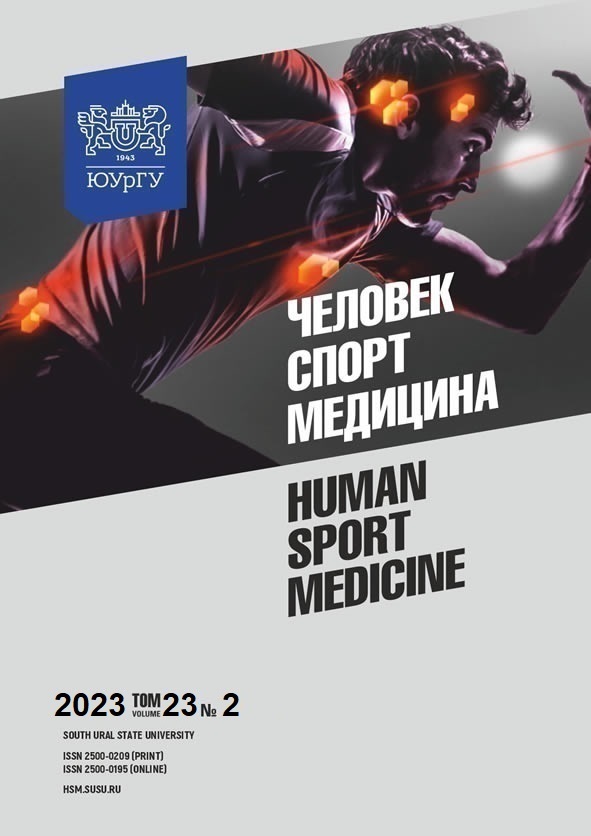ASSESSMENT OF PSYCHOPHYSIOLOGICAL CHARACTERISTICS IN NESU FEMALE VOLLEYBALL PLAYERS DURING TRAINING
Abstract
The aim of the research was to study the dynamics of psychophysiological characteristics in female volleyball players at North-Eastern State University (Magadan) depending on the period of training. engaged in volleyball. The study took place at North-Eastern State University and included three stages: May 2019 – post-competition period, September 2019 – the beginning of the training cycle after summer, February 2020 – pre-competition period. The following psychophysiological characteristics were measured: critical flicker fusion frequency (CFF, Hz), simple visual-motor reaction (ms), complex visual-motor reaction (ms), and the number of errors during sensorimotor tests. The First Sync psychophysiological diagnostic console (SCUS computerized stress control system) was used to perform measurements. Results. The results obtained show significant changes in the main psychophysiological characteristics of female volleyball players during training. At the same time, significantly lower mobility of nervous processes against a decreased concentration of attention was observed in the post-competition period, which was apparently caused by fatigue after a number of sports events. Whereas the best psychophysiological status was observed in the pre-competition period. Conclusion. The obtained data on the psychophysiological state of female athletes in the pre-competition period confirms the optimal structure of the training program for NESU female volleyball players.
References
References on translit
Copyright (c) 2023 Human. Sport. Medicine

This work is licensed under a Creative Commons Attribution-NonCommercial-NoDerivatives 4.0 International License.















